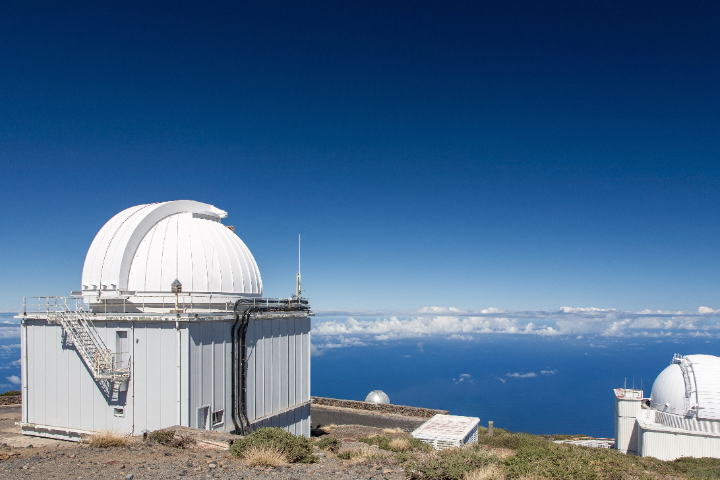No products in the basket.
Embark on a celestial odyssey with our Astrophysics Level 3 Advanced Diploma. Tailored for enthusiasts, students, and educators, this course offers a profound exploration of stellar evolution, planetary systems, and the forefront of astrophysical research. Enrol now for an enlightening journey into the depths of the cosmos.
Course Price:
Course Duration:
4 hours, 5 minutes
Total Lectures:
38
Total Students:
119
Average Rating:
4.5
Embark on a cosmic journey with our Astrophysics Level 3 Advanced Diploma, delving into stellar evolution, exoplanetary systems, high-energy astrophysics, and the mysteries of dark matter and gravitational waves.
What Will You Learn?
- Stellar Evolution and Nucleosynthesis: Explore the life cycles of stars and the creation of elements in the heart of these celestial giants.
- Exoplanetary Systems and Habitability: Investigate the vast array of planetary systems beyond our solar system and the conditions for habitability.
- High-Energy Astrophysics: Unravel the secrets of high-energy phenomena, from pulsars to quasars, shaping our understanding of the universe's energetic extremes.
- Cosmology and Dark Matter: Probe the cosmos on a grand scale, exploring the structure and evolution of the universe, including the enigma of dark matter.
- Gravitational Waves and General Relativity: Understand the revolutionary insights brought by gravitational wave astronomy, as predicted by Einstein's general relativity.
- Advanced Topics in Astrophysics: Engage with cutting-edge concepts and recent discoveries, navigating the frontiers of astrophysical research.
Who Should Take The Course?
- Physics and astronomy enthusiasts seeking advanced knowledge in astrophysics.
- Students pursuing a career or further studies in astrophysics or related fields.
- Science educators aiming to deepen their understanding of astrophysical concepts.
- Individuals fascinated by the mysteries of the cosmos.
Requirements
- Strong foundation in physics and mathematics (recommended).
- Access to a device with internet connectivity for course materials.
- Curiosity and a passion for exploring the wonders of the universe.
Course Curriculum
-
- Introduction to Stellar Evolution 00:06:00
- Main Sequence Stars: Hydrogen Fusion 00:05:00
- Red Giants and Supergiants 00:06:00
- Supernovae and Neutron Stars 00:05:00
- Black Holes: Formation and Properties 00:05:00
- Nucleosynthesis: Stellar Fusion and Element Creation 00:05:00
-
- Exoplanet Detection Methods 00:05:00
- Types of Exoplanets: Super-Earths, Gas Giants, etc. 00:06:00
- Habitable Zones and Conditions for Life 00:05:00
- Exoplanet Atmospheres and Climate 00:06:00
- The Search for Extraterrestrial Life 00:06:00
- Implications of Exoplanet Discoveries 00:05:00
- Introduction to High-Energy Astrophysics 00:05:00
- X-ray Binaries and Accretion Disks 00:05:00
- Gamma-Ray Bursts: Origins and Characteristics 00:05:00
- Active Galactic Nuclei (AGN) 00:06:00
- Black Hole Accretion and Jets 00:05:00
- Cosmic Rays: Origins and Effects 00:05:00
- Introduction to General Relativity 00:05:00
- Predictions of General Relativity 00:05:00
- Gravitational Waves: Detection and Significance 00:06:00
- Neutron Star Collisions and Kilonovae 00:05:00
- Black Hole Mergers and Gravitational Wave Astronomy 00:05:00
- Testing General Relativity in Extreme Environments 00:05:00
- Exam of Astrophysics Level 3 Advanced Diploma 00:50:00
New Courses
Blogs
20
Jul'23
ADHD Training for Teachers: Empowering Educators to Support Students with Attention Challenges
Relationships may be severely harmed by narcissistic behaviours, leaving emotional scars and...
20
Jul'23
Narcissistic Behaviour and Relationships: Understanding the Impact and Finding Healing
Relationships may be severely harmed by narcissistic behaviours, leaving emotional...
20
Jul'23
Childhood Trauma in Adults
What Is Childhood Trauma? Childhood trauma refers to distressing or...
20
Jul'23
Creating A Social Media Strategy
Set Clear Objectives:The first step in developing a successful social media...
20
Jul'23
Neuro-Linguistic Programming Techniques
Neuro-Linguistic Programming (NLP) is a fascinating and widely acclaimed approach...
19
Jul'23
Acceptance and Commitment Therapy in the UK
What is acceptance and commitment therapy? Acceptance and Commitment Therapy...




